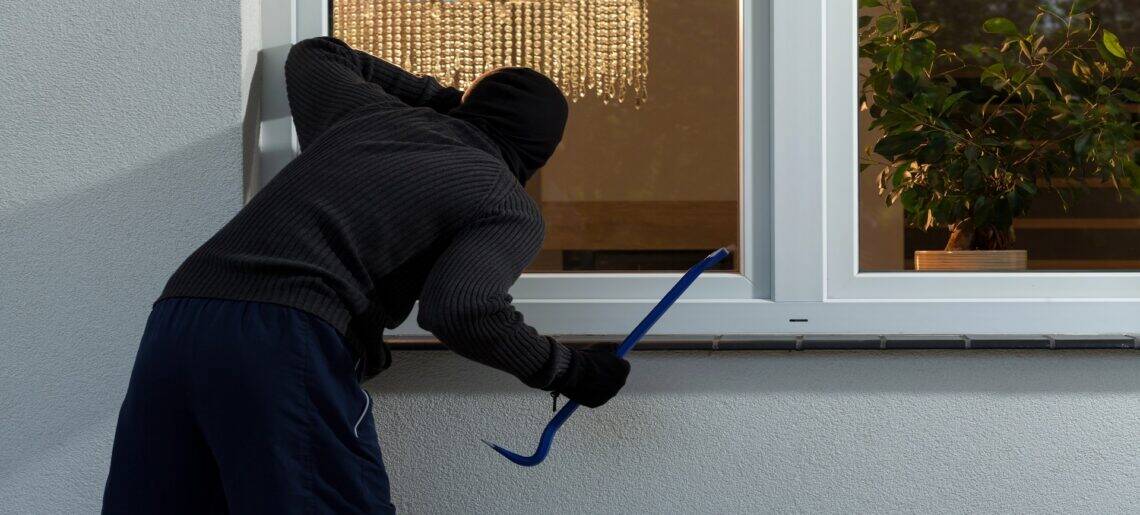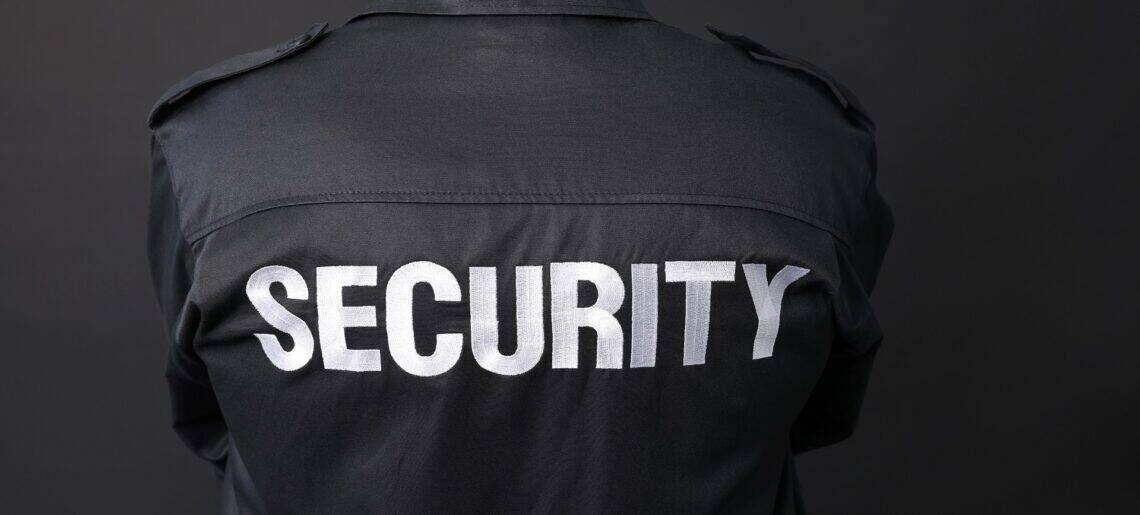Dealing with conflict is an everyday part of a security guard’s role. Whether you’re posted in a mall, hospital, residential, or commercial property, you’ll run into people who are unhappy about someone or something. Although they share many of the same characteristics, not all conflicts are the same. Your ability to recognize the type of conflict you are facing can help you to respond in a more effective and meaningful way.
In this post we will explore the five main types of conflict that security guards will face on the job. They are:
- Relationship-Based Conflict
- Data-Based Conflict
- Interest-Based Conflict
- Structural Conflict
- Values-Based Conflict
We will discuss what each type is, what it looks like, and provide effective strategies for managing it. Any conflict has the potential to escalate into a serious, and sometimes dangerous issue; which makes resolving it quickly a priority.
Relationship-Based Conflict
What it is:
This type of conflict stems from personal tensions, emotional baggage, or long-standing dislike between individuals. It’s less about what happened and more about how the people involved feel about each other. Relationship-based conflict often grows over time through a series of miscommunications, negative assumptions, and personality differences.
Why it matters:
You may find yourself caught in the middle of personal disputes between visitors, employees, tenants, etc. You may even become directly involved if you’re interacting with someone who has taken a dislike to you.
Example:
Alex, a retail store manager, feels like his assistant manager Jordan often ignores him. Alex thinks that Jordan is lazy, while Jordan feels Alex is rude and overbearing. During your patrol, you happen upon a verbal argument between them, where Alex is accusing Jordan of neglecting his duties. It seems to be escalating, so you approach and ask if you can help them.
How to help them:
- Don’t take sides: Stay neutral and non-judgemental.
- Use active listening: Give both parties uninterrupted time to explain their perspectives.
- Acknowledge the emotions: You don’t have to agree with them, but you need to acknowledge how each is feeling in the moment.
- Use calm, clear language: Choose your words and paraverbals carefully. Be sure not to sound sarcastic or demeaning.
- Get help if needed: If you are unable to effectively mediate, refer them to another manager or supervisor.
Sample Approach:
“It sounds like there may have been a misunderstanding between the two of you. I’d like to help you, but first I need to understand what’s going on. I would like each of you to explain what has upset you. Who would like to go first?”
Data-Based Conflict
What it is:
This is what happens when people disagree on facts…what happened, what someone says happened, the interpretation of information, etc. Disagreements can arise from misinformation, a lack of information, or different interpretations of the same data.
Why it matters:
For security guards, documenting incidents is an important part of the job. This requires gathering, analyzing and then recording data. The accuracy and credibility of the information can vary greatly, depending on the source (video footage, eye witnesses, hearsay), the guard’s memory, bias, whether the witness has an incentive to protect themselves or someone else, etc. Ultimately, there is always the possibility that what is intended to be a true account of events can be open to interpretation and challenge.
Example:
Lisa, a mall security guard, reports an increase in loitering in the evenings. Her manager reviews security footage over the past week and observes no significant changes. They advise Lisa that she is incorrect in her observations, but she insists that the problem is getting worse.
How to manage data conflicts:
- Stay objective: Focus on facts, not opinions or subjective information.
- Review all credible sources: Cameras, logs, eye witness statements.
- Acknowledge limitations: Cameras can have blind spots, people’s memories can be fuzzy or biased.
- Seek clarification: Ask specific questions to dig deeper and uncover as much about the situation as possible.
Practical Tip:
Compare and contrast multiple data sources. Look for data points that are supported across most, if not all sources, and identify any that are contradictory or unsupported across multiple sources. Information that can be corroborated by many sources is likely correct. Information that is harder to corroborate may be inaccurate, or require more scrutiny before being accepted as fact.
Interest-Based Conflict
What it is:
This type of conflict is based around the perception of competition. Each party believes that they need the same limited resources (time, space, control, food, water, etc.) and if the other person gets it, then they must do without.
Why is matters:
Interest-based conflicts are quite common when guards are enforcing rules, procedures, controlling access, etc. These situations often put the guard and subject at odds with one another, since the guard may be preventing the other person from doing what they believe they need to do.
Example:
At a mixed use commercial building, a security guard named Mike is tasked with strictly enforcing the parking rules. The management of the urgent care medical clinic (tenant) has complained that their patients have been having their cars towed when they park near the doors because they are in a rush. Now Mike is stuck between enforcing the rules fairly, and keeping the clinic management happy.
How to manage it:
- Identify each party’s core needs: Look beyond their positions and reactions for the underlying motivation. Find the need that is not being met.
- Seek common ground: What factors can both sides agree on? Get them to agree on some things, and build on it from there.
- Suggest win-win solutions: Use compromise and creativity to find solutions that meet most or all of everyone’s needs.
- Be flexible within your authority: Know what you have the authority to do, and when it’s time to refer to a higher level authority like a supervisor.
Practical Tip:
Offer alternatives and need-based solutions that show that you are trying to work with the parties to solve the problem…not just enforcing rules. For instance, Mike might approach the landlord and propose that they create a short-term parking area specifically for the medical clinic’s clients.
Structural Conflict
What it is:
Structural conflict is caused by systems, policies, or environments, rather than the actions of individuals. Sometimes policies designed to address one issue end up creating others.
Why it matters:
Security guards are often the ones responsible for enforcing policies and systems that they didn’t create. When people are inconvenienced by them, it is often the guard that takes the brunt of their frustration.
Example:
A new safety policy at a corporate office now requires everyone to pass through a metal detector upon entry to the building. The immediate consequence is a long line, delays, and angry employees complaining that the guards are moving too slowly.
How to manage it:
- Acknowledge their frustration: Let people know that you recognize and understand how the situation is impacting them.
- Clarify your role: Explain that the policy comes from corporate management, not from security.
- Suggest constructive feedback channels: Provide them with contact information for who is responsible for the policy so that they can follow up with them directly. Alternatively, offer to pass the concerns on to them yourself.
- Work with stakeholders to find efficiencies: As the boots on the ground with first-hand experience, suggest ways to speed things up, such as staggering the entry times.
Sample Approach:
“I know this line is frustrating. This process was implemented by management to help keep everyone safe. If you’d like to share your feedback, I’d be happy to direct you to the right person.”
Values-Based Conflict
What it is:
This conflict stems from differences in beliefs, cultures, ethics, etc. It’s not about data, rules, or resources. It goes much deeper than that, to identity, principles and a person’s sense of right and wrong.
Why it matters:
Security guards may be required to enforce rules that clash with someone’s religious or cultural beliefs and/or norms. These beliefs run deep, and can lead to intense emotionally charged responses.
Example:
Security at an airport asks a passenger wearing a religious face covering to remove it for identification verification purposes. The passenger’s cultural beliefs forbid her to show her face in view of the public, leading to a tense conflict between the need for safety vs. the need for adhering to cultural norms.
How to manage it:
- Be respectful, not dismissive: Acknowledge the other person’s values.
- Seek compromise: Can the rules allow for exceptions? Can the person’s values be flexible in the face of sound reasoning for the rule in question?
- Explain the reasoning behind the rule: Help the person see the “why” behind the “what”. Understanding what the rule is meant to achieve can sometimes bring clarity to the situation and encourage cooperation.
- Use privacy when needed: People’s personal beliefs are just that…personal. If necessary, move the conversation to a more private setting to avoid embarrassment.
Sample Approach:
“I understand that it is important that you not expose your face in public, but for safety reasons we are required to verify everyone’s identity prior to boarding the plane. Would you be willing to accompany one of our female agents to a private room and show her your face?”
Conclusion
Security guards work in dynamic, high-pressure environments where conflicts of all types can arise at any moment. When conflict can’t be avoided, understanding the type of conflict you’re dealing with will allow you to manage it professionally and effectively.
Key Takeaways:
- Stay calm and professional: Emotions are like fuel for conflicts. Managing yours removes some of that fuel.
- Listen before acting: Most of the time, people want to be heard more than they want to be right.
- Adapt your approach for the type of conflict: Strategies that work for data conflicts will not necessarily work for value-based ones.
- Know your authority…and limitations: Keep within the bounds of your authority when enforcing rules and offering solutions.
- Ask for help: Sometimes, higher-level intervention is needed. Remember, the goal is conflict resolution. Utilize whatever resources are available.
By understanding the different types of conflict, and effective conflict management strategies, you’ll be protecting not only the property, but also the people and relationships within it.











